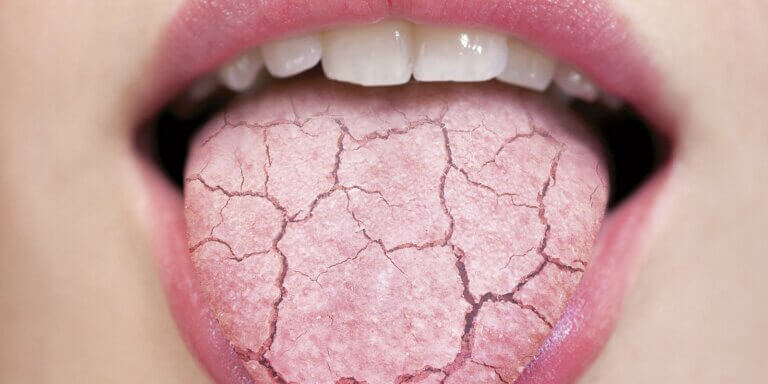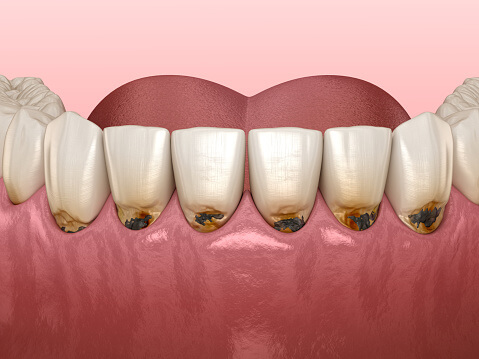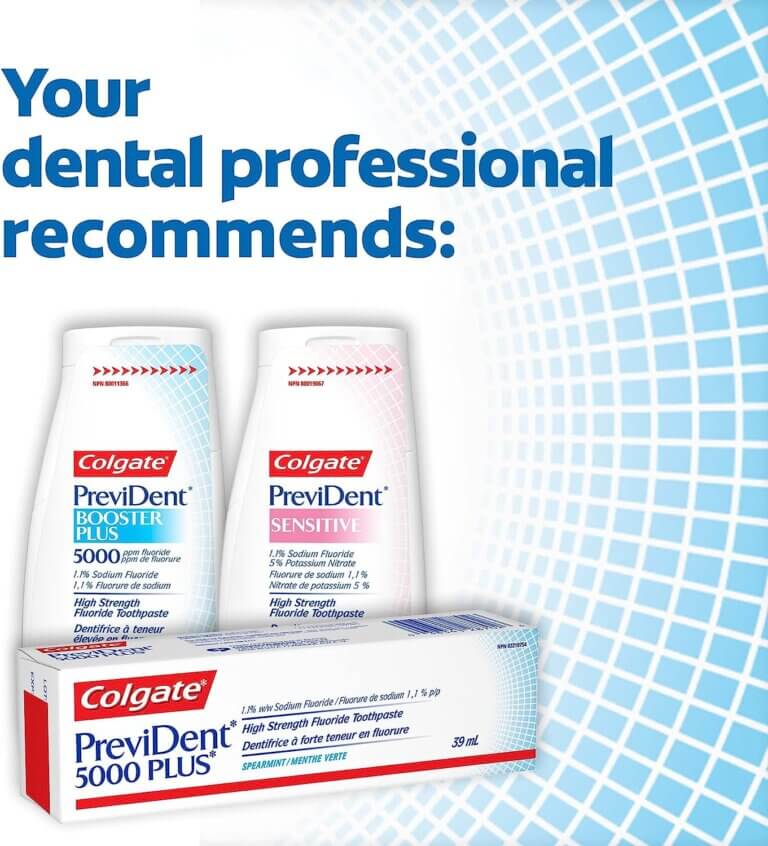Dry Mouth

What Is Dry Mouth?
Dry mouth, also known as xerostomia, is a condition that affects the salivary glands in your mouth, causing a decrease in the production of saliva. Saliva is essential for keeping your mouth moist and lubricated, neutralizing acids that are harmful to teeth, helping you speak, swallow, and digest food. When you have dry mouth, you may experience a range of uncomfortable symptoms, including a dry, sticky feeling in your mouth, difficulty speaking, a constant thirst, and an increased risk of dental problems like cavities.
Before you contact a Toronto dentist to examine a Dry Mouth problem, there are some things you should know as a patient:
- What Causes Dry Mouth?
- Signs And Symptoms Of Dry Mouth
- Treatment Options For Dry Mouth
- Oral Hygiene Tips For Dry Mouth
- Recommended Products for Dry Mouth Relief
- Frequently Asked Questions About Dry Mouth
If you have questions about Dry Mouth or other dental problems, please contact us for more information.
What Causes Dry Mouth?
Dry mouth can result from several factors, ranging from medication side effects to lifestyle choices and underlying health conditions. Here’s a breakdown of common causes:
- Medications: Many medications, including antihistamines, decongestants, antidepressants, and blood pressure drugs, list dry mouth as a side effect. If you’re experiencing dry mouth due to medications, discuss this with your doctor.
- Medical Conditions: Health issues like diabetes, autoimmune disorders such as Sjogren’s syndrome, and Parkinson’s disease can cause dry mouth. Managing the underlying condition may improve your symptoms.
- Lifestyle Habits: Smoking and alcohol consumption can reduce saliva production. Smoking can damage salivary glands, and alcohol dehydrates the body.
- Aging: Saliva production tends to decrease naturally with age.
- Nerve Damage: Head and neck injuries affecting nerves that control saliva production can lead to dry mouth.
- Radiation Therapy: Cancer treatments around the head or neck can affect salivary glands.
- Mouth Breathing: Regularly breathing through the mouth, especially at night, can contribute to dry mouth.
By understanding the underlying causes, you can take proactive steps to manage dry mouth. If you have further questions about the causes of Dry Mouth, please contact us.

Signs and Symptoms of Dry Mouth
Dry mouth can present several uncomfortable symptoms, including:
- Dry, Sticky Feeling in the Mouth: The most common symptom, often making the mouth feel thick or mucusy.
- Difficulty Speaking and Swallowing: A lack of saliva can make it challenging to speak clearly and swallow comfortably.
- Persistent Thirst: Many people with dry mouth feel the need to drink water constantly.
- Dry or Sore Throat: The throat may feel scratchy or painful, making swallowing uncomfortable.
- Bad Breath: Without enough saliva to wash away bacteria, bad breath may develop.
- Chewing Difficulties: Lack of saliva can make chewing and digesting food harder.
- Increased Risk of Tooth Decay: Saliva helps neutralize bacteria-produced acids that lead to tooth decay. Without enough saliva, this risk increases.
If you’re experiencing any of these symptoms, talk to your dentist or doctor to determine the cause and discuss treatment options. For more information about the signs and symptoms of Dry Mouth, please contact us.
Treatment Options for Dry Mouth
If you’re experiencing dry mouth, there are several treatment options available, including:
- Saliva Substitutes: Over-the-counter saliva substitutes mimic the natural moisture of saliva and provide temporary relief.
- Prescription Medications: Your doctor may prescribe medications to stimulate saliva production or treat any underlying condition causing dry mouth.
- Fluoride Trays: These custom trays, filled with fluoride gel, strengthen teeth and prevent decay.
- Dental Fillings and Crowns: If cavities or severe decay result from dry mouth, your dentist may recommend fillings or crowns to protect your teeth.
- Lifestyle Changes: Avoiding tobacco and alcohol, drinking plenty of water, and chewing sugar-free gum or lozenges with xylitol can help stimulate saliva.
Your treatment plan will depend on the underlying cause of your dry mouth and the severity of your symptoms. Be sure to talk to your dentist or doctor about the best treatment options for you. If you have further questions about Dry Mouth treatment, please contact us.
Oral Hygiene Tips For Dry Mouth
Proper oral hygiene is essential to avoid complications associated with dry mouth. Here are our top oral hygiene tips:
- Brush Twice Daily: Brush your teeth at least twice a day with a soft-bristle toothbrush such as the Curaprox Ultra Soft Swiss Toothbrush or an electric toothbrush, such as the Philips Sonicare ProtectiveClean 6100, to avoid damaging sensitive gums.
- Use High-Fluoride Toothpaste: Strengthen tooth enamel with high-fluoride toothpaste, like Colgate PreviDent 5000 ppm Booster Plus Toothpaste.
- Floss Daily: Flossing removes particles and plaque between teeth to prevent cavities. If traditional floss is challenging, consider a water flosser.
- Rinse with a Dry Mouth Mouthwash: A mouthwash specifically for dry mouth, like Biotene Dry Mouth Moisturizing Mouthwash, can freshen breath and reduce bacteria.
- Use Fluoride Trays at Night: Apply fluoride gel in a custom tray at night to protect your teeth. We recommend X-PUR NaF Gel.
- Chew Xylitol Gum: Xylitol gum or lozenges help stimulate saliva production and protect against cavities. Try XyliMelts Stick-On Melts for dry mouth relief.
- Stay Hydrated: Drinking water regularly helps keep the mouth moist. Avoid dehydrating drinks like alcohol and caffeine.
- Limit Sugary and Acidic Foods: Foods and drinks high in sugar and acid can worsen dry mouth and harm teeth. Opt for water-rich foods like fruits and vegetables.
For more guidance on managing dry mouth, contact us. Our team is here to help you find relief and maintain your oral health. For more information about oral hygiene practices for Dry Mouth, please contact us.

Recommended Products for Dry Mouth Relief
Here are our top product recommendations for dry mouth management:
- Toothbrush: Curaprox CS5460 Ultra Soft Swiss Toothbrush OR Electric Toothbrush: Philips Sonicare Protectiveclean 6100
- Floss: GUM ButlerWeave Dental Floss OR Sunstar 888JC GUM Advanced Care Flossers OR Oral-B Super Floss
- Water Floss: Waterpik Aquarius Water Flosser
- Interdental Brushes: GUM Proxabrush
- Toothpaste: Colgate PreviDent 5000 ppm Booster Plus Toothpaste
- Mouthwash: Biotene Dry Mouth Moisturizing Mouthwash
- Fluoride Gel For Fluoride Trays: X-PUR NaF Gel
- Xylitol Lozenges: XyliMelts Stick-On Melts for Saliva Stimulation.
By using these oral hygiene products regularly, you can help manage your dry mouth symptoms and protect your teeth from cavities. If you have further questions about Dry Mouth products, please contact us.
Frequently Asked Questions About Dry Mouth
- How is dry mouth diagnosed?
A dentist or doctor can diagnose dry mouth based on your medical history, a physical examination, and possibly saliva flow tests.
- What complications can arise from untreated dry mouth?
If left untreated, dry mouth can lead to difficulties in speaking and swallowing, an increased risk of tooth decay and gum disease, mouth sores, and fungal infections like thrush.
- Are there any lifestyle changes that can help alleviate dry mouth?
Yes, avoiding tobacco and alcohol, using a humidifier at night, and chewing sugar-free gum can help stimulate saliva flow and alleviate symptoms.
- Can dry mouth be a sign of a serious health condition?
Yes, dry mouth can be associated with underlying health issues such as autoimmune diseases, diabetes, or as a side effect of certain treatments like radiation therapy.
If you’re experiencing persistent dry mouth, it’s important to consult with your dentist or healthcare provider to determine the underlying cause and appropriate treatment to maintain your oral health. If you have further questions about Dry Mouth, please contact us.

